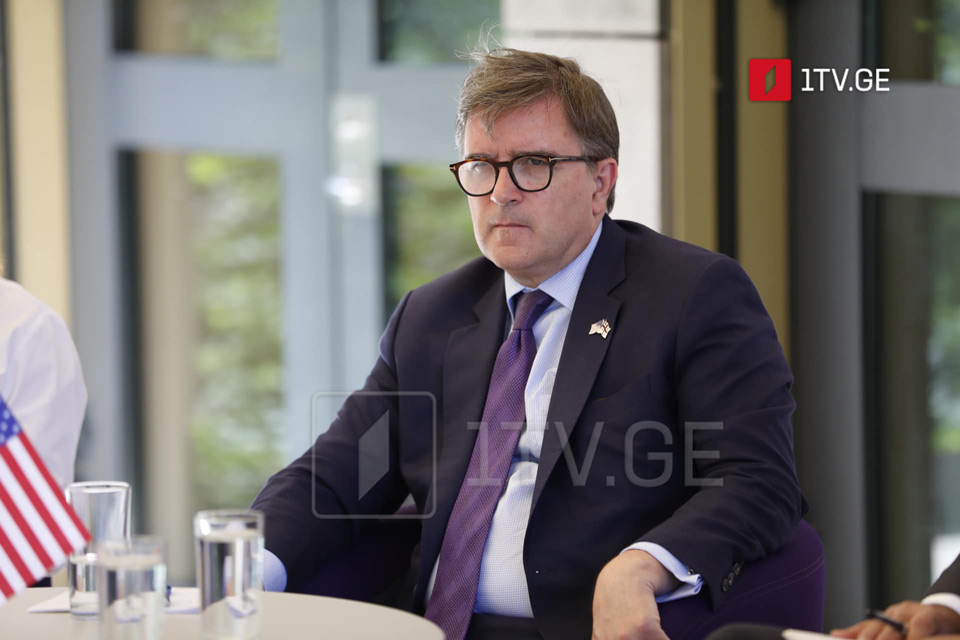James O’Brien says U.S. not to publish a list with names of sanctioned individuals
“We think we are reaffirming our Georgia policy, that we support Georgia’s reforms and integration into the EU and NATO. That was a major message of my visit last week,” said U.S. Assistant Secretary of State for European and Eurasian Affairs, James O’Brien at the briefing.
The U.S. Assistant Secretary of State was asked to remark on the Georgian law On Transparency of Foreign Influence.
“We feel that this particular law, the rhetoric that surrounds it, and the violence against protesters are all inconsistent with the choice of moving forward to the EU and NATO.
And I had very detailed conversations with representatives of the government, including the prime minister and foreign minister, about the specific ways in which the proposed law, we think, is incompatible with the path that Georgia has set for itself. And the Venice Commission, so the body in Europe that comments on these laws, came out with a very strong opinion this week making the same point. So this is a matter of whether the Georgian – the leadership of the Georgian Government is trying to change what it means to join European and transatlantic organizations, not whether our policy is changing.
The comment about whether this is coercion, no, it’s a simple point. If you say you want to join a football match, you don’t get to say that – but our side will play with 15 people and you will play with seven, or we will play with an extra ball. You play by the rules of the club you are trying to join. And the point is that the actions being taken are incompatible with the – both the pursuit of membership and actually getting to membership. And this, we would like to have had technical, routine conversations because the issues raised are issues every country faces and tends to deal with in a normal way.
The actions of particular concern to us, though, involve violence and intimidation of people who do not support the government and putting in place legal frameworks that are incompatible with the aspirations the government was elected to carry out. That’s a very different conversation than the way that the leadership of Georgian Dream has decided to portray it,” he said.
Remarking on the U.S. sanctions on Georgian government officials, James O’Brien said the U.S. would not publish a list with specific names.
“As far as our additional actions, the Secretary noted that we are reviewing all the cooperation we have, and I’m not going to preview additional specific actions. I’ll make a technical point. Under the announcement of yesterday, we do not publish a list of names. It’s not what that statutory authority allows us to do. But we’ve made clear the sorts of acts that are of particular concern to us, and it’s the effort to undermine democratic processes, in particular the use of violence and intimidation against those who come. And the way that this statute works, it’s not only the officials but it’s their family members. And that, again, is not a coercive tactic. It’s a statement that if you want to be in our community, including to benefit from things like where your kids go to school, then you have to start acting like a member of that community. And that’s all we are saying,” he said.
U.S. Secretary of State Antony Blinken on May 24 announced a new visa restriction policy for Georgia that will apply to individuals who are responsible for or complicit in “undermining democracy” in Georgia, as well as their family members.
U.S. Secretary said he had also launched a “comprehensive review” of bilateral cooperation between the United States and Georgia.

